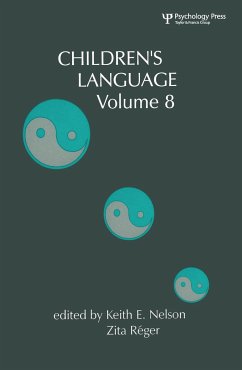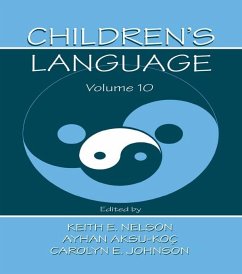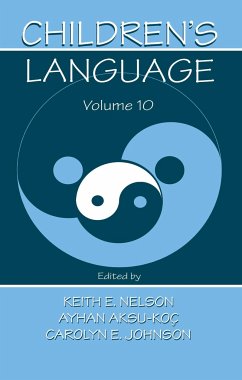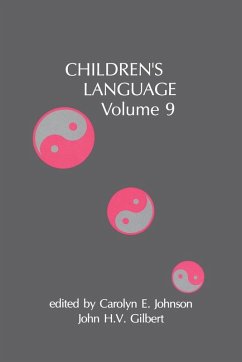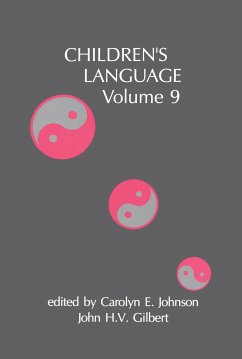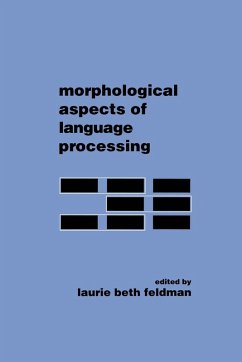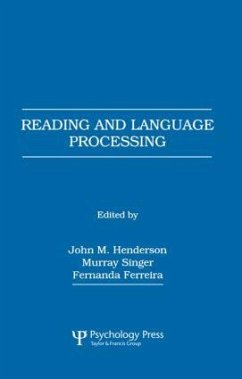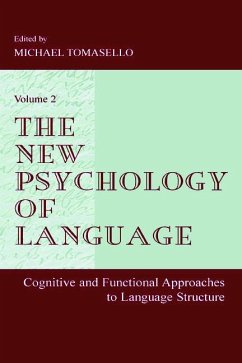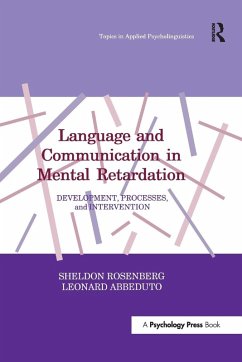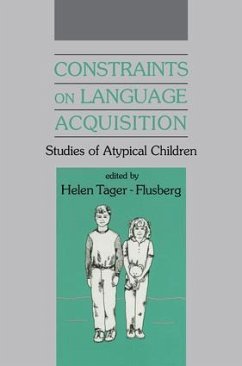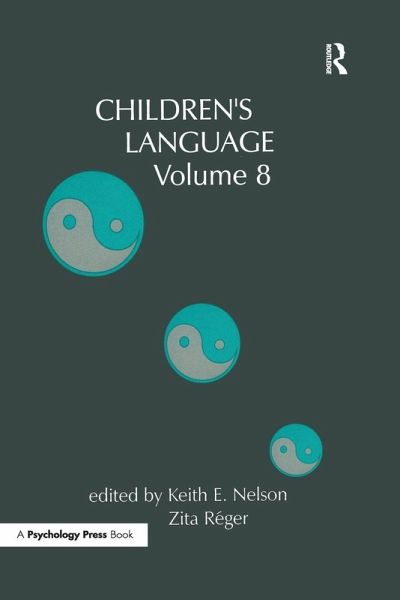
Children's Language
Volume 8
Herausgeber: Nelson, Keith E.; Reger, Zita; R'Ger, Zita

PAYBACK Punkte
24 °P sammeln!
Each child is spoken to by genetic heritage and by the rich current set of interactional environments -- familial, local community, and broader cultural voices. Using past structures and paradigms of scholarship, scholars seek to understand what the child achieves in language and how. The tools available for this research are not static but evolve jointly through the sharing of information, and with each "brief moment in time" in efforts to look at children's languages "just as they are." Containing a wide range of contributions from developmental approaches to phonological ability, the lexico...
Each child is spoken to by genetic heritage and by the rich current set of interactional environments -- familial, local community, and broader cultural voices. Using past structures and paradigms of scholarship, scholars seek to understand what the child achieves in language and how. The tools available for this research are not static but evolve jointly through the sharing of information, and with each "brief moment in time" in efforts to look at children's languages "just as they are." Containing a wide range of contributions from developmental approaches to phonological ability, the lexicon, the grammar as well as conversation and sign language, this text details the interrelated research and theorizing discussed at a recent Budapest conference. The meeting of the International Association for the Study of Child Languages was particularly rich in the diversity of scholars present, which is highly appropriate because such diversity is integral to an informed study of children's language.





